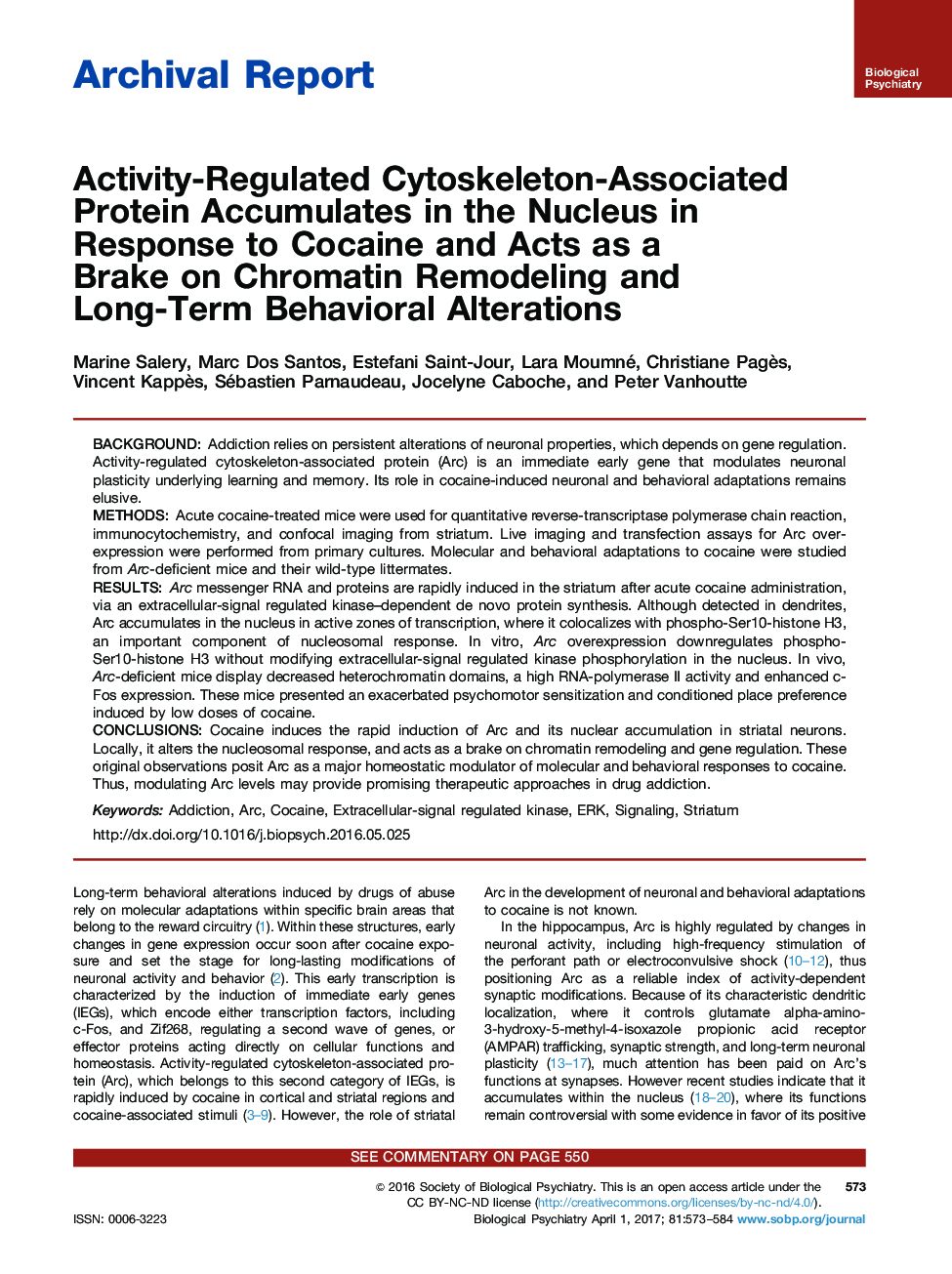| کد مقاله | کد نشریه | سال انتشار | مقاله انگلیسی | نسخه تمام متن |
|---|---|---|---|---|
| 5720566 | 1411318 | 2017 | 12 صفحه PDF | دانلود رایگان |
BackgroundAddiction relies on persistent alterations of neuronal properties, which depends on gene regulation. Activity-regulated cytoskeleton-associated protein (Arc) is an immediate early gene that modulates neuronal plasticity underlying learning and memory. Its role in cocaine-induced neuronal and behavioral adaptations remains elusive.MethodsAcute cocaine-treated mice were used for quantitative reverse-transcriptase polymerase chain reaction, immunocytochemistry, and confocal imaging from striatum. Live imaging and transfection assays for Arc overexpression were performed from primary cultures. Molecular and behavioral adaptations to cocaine were studied from Arc-deficient mice and their wild-type littermates.ResultsArc messenger RNA and proteins are rapidly induced in the striatum after acute cocaine administration, via an extracellular-signal regulated kinase-dependent de novo protein synthesis. Although detected in dendrites, Arc accumulates in the nucleus in active zones of transcription, where it colocalizes with phospho-Ser10-histone H3, an important component of nucleosomal response. In vitro, Arc overexpression downregulates phospho-Ser10-histone H3 without modifying extracellular-signal regulated kinase phosphorylation in the nucleus. In vivo, Arc-deficient mice display decreased heterochromatin domains, a high RNA-polymerase II activity and enhanced c-Fos expression. These mice presented an exacerbated psychomotor sensitization and conditioned place preference induced by low doses of cocaine.ConclusionsCocaine induces the rapid induction of Arc and its nuclear accumulation in striatal neurons. Locally, it alters the nucleosomal response, and acts as a brake on chromatin remodeling and gene regulation. These original observations posit Arc as a major homeostatic modulator of molecular and behavioral responses to cocaine. Thus, modulating Arc levels may provide promising therapeutic approaches in drug addiction.
Journal: Biological Psychiatry - Volume 81, Issue 7, 1 April 2017, Pages 573-584
